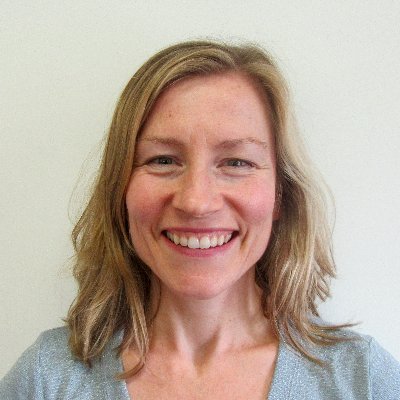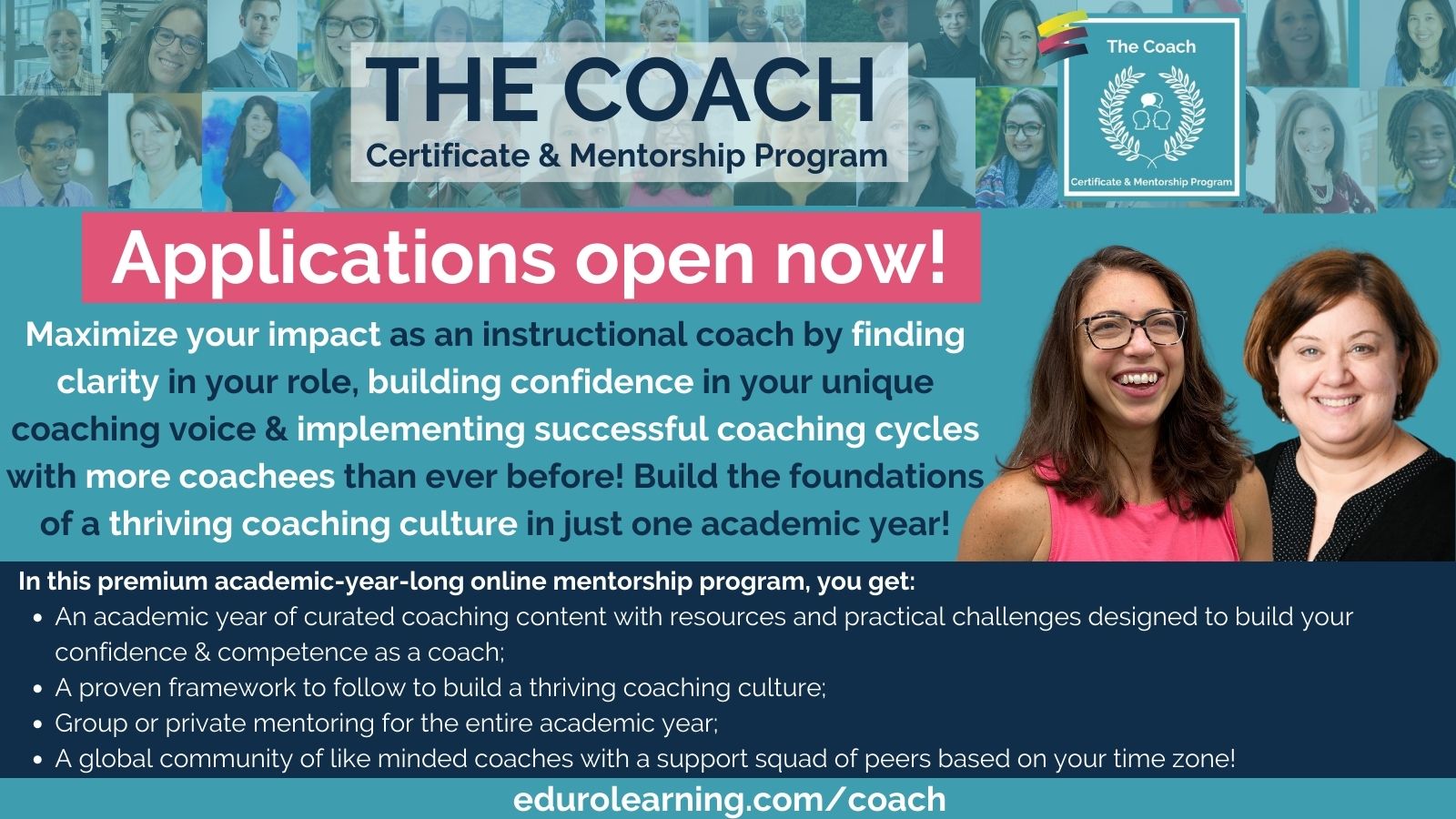In this #coachbetter episode, we’re chatting with Holly Fraser Primary School Educational Technology Coach at International School of Zug and Luzern. Holly shares both the rewards and challenges of building a coaching culture, where often she feels like she has to “sell” the value of tech to her teaching colleagues, but once they can see the impact, the motivation and enthusiasm builds. As an Early Years specialist, Holly understands the challenges of using technology with younger learners and this episode highlights some of the specific strategies that she has used to make those experiences successful for both students and teachers.
Subscribe to #coachbetter via your favorite Podcast Player!
Featured Guest

Bonus! Watch the Spotlight Version on YouTube!
SHOW NOTES
Something you’re excited about in terms of learning / learning innovation
Lots of change, new Head of School. Big talk about mission and value statements are in need of a revamp. Current statements are more “traditional”, would like to see those be more future-focused. School is focused on standardized test scores, need to be more focused on student learning. Trying to tie what the school does well, while also adding additional elements like the UN global goals or global collaborations and helping teachers see the value of adding that to their day (without scaring them away).
Tell us a little bit about the coaching structure at your school. How would you like to see it grow?
Although official job title is EdTech Coach, often viewed as an integration specialist or specialist teacher, but doesn’t have to report on tech. Sometimes tech happens based on her ability to convince teachers of its relevance. Sometimes feels like a used car salesman trying to “sell” her ideas for tech integration. Can be exhausting. Would like to see that role move more towards coaching. Teachers working with her not just because tech doesn’t work, but more about learning. Has taken on more of a coaching role with the teachers she’s not “meant” to work with.
What keeps you motivated?
Colleague, Kim Lelek, shares a bit of positive momentum, collaborating on projects, trying to get cross-grade collaboration going. Online tribe is motivating (COETAIL, Eduro, etc). Teachers she works with regularly. Working together more on weekly tech tips, and things like a digital citizenship continuim.
What’s the structure of the school overall?
Primarily focused on Elementary.
How do you help teachers understand the value of tech for learning?
Use an example of another teacher who did something previously and recommending that the teacher ask them. Another teacher’s word can be a better “sell” than the coach. Making the explicit connection between “traditional skills” and how we do that in a digital space.
What are the main challenges you get in Early Years? And how do you deal with them?
Teachers can struggle to see the value of tech for learning, and even if they do see the value, sometimes they feel like they have to do extra justification. They have a specific time called “free flow” where students can move between different classes. One day, the students were enjoying the challenge of coding with one specific app, but the teachers said that they were spending “too long” on the iPad. Holly points out “But you wouldn’t have said that if they were playing with lego.” It’s about finding the balance AND supporting teachers in being able to defend that value to others (like parents).
Another challenge is that teachers don’t have the time to invest in learning. Because they don’t take the time to explore something first, they don’t want to explore with a whole class of kids. Convincing them to take the time. They’re only going to make the time if they see the value.
More grades are taking on the “free flow” model, but called “workshop” or “passion projects”
What has been successful with Early Years and Tech?
Digital portfolios on Seesaw, to empower students. Digital storytelling and greenscreen and stop motion animation. Even the little kids are so motivated to create something that normally they just consume. They learn all sorts of choices when creating media. Coding and robots have lost their scariness, and have a better understanding of what that looks like in an early years setting.
How did you make coding and robotics successful?
Every year there is an hour of code push in December, started with just a few classes, but now that it’s been here for several years, teachers feel more obligated. For this opportunity, Holly said that she needs teacher support for the three stations, and being a bit “bossy” really helped out and having teachers involved really helped teachers see how it actually works. Based on that buzz and popularity, it’s gained traction. The more they play with it themselves, the more they see the value.
What inspires you as a learner, as a teacher, as a leader? What has happened in the past that inspires you?
Anyone who steps outside of the traditional mold is inspiring. Moving into the role of a coach has forced me outside of my comfort zone as a classroom teacher, into trying to see what other educators are doing. Twitter is a huge source of inspiration. COETAIL has been inspirational. Being a coach has given her opportunities to lead from within. Each grade level has a team lead, but there are other ways to be a leader too, in ways that aren’t necessarily formally recognized too. Trying to get PubPD Europe off the ground, trying to get my colleagues to be social and talk about learning. Trying different ways of getting people together to start interesting discussions.
What is / was the most innovative (or challenging) experience in your career had or is having an impact on your professional growth?
Co-Chairing Learning2 with Will Kirkwood, stepping outside of comfort zone and bring a great learning opportunity to my colleagues and other educators.
When I worked in Congo, director let teachers run the school. It was so empowering working with the team leads and developing whole school events. Every new year was an opportunity for us to re-think why we do things certain ways. If we’re going to have a collaboration with a local school, we want it to be both ways.
Leadership in your action, not in your title.
Please share a reading / resource you have explored recently that you think would be valuable to other teachers or coaches
Twitter, find your tribe.
Podcasts: Cult of Pedagogy podcast. TEDed episodes. The Art of Coaching by Elena Aguilar.
Level Up Your Coaching with The Coach!
If you are ready to dive deep into your coaching practice, to help you #coachbetter and build a thriving coaching culture in your school, please join us for our next cohort of The Coach!
Wherever you are in building a coaching culture in your school, The Coach will give you the strategies, skills and tools you need to make coaching a success and will empower you to confidently apply instructional coaching strategies in any situation – from building a coaching program, to having coaching conversations, to being a leader in your school community. We facilitate only one cohort each academic year so we can offer individualized support for each participant.
Coaches of all levels are welcome: you’ll start the program with a self-assessment to determine exactly what the next steps are for you!
Registration for our next global cohort opens once a year – check the website for details!






Recent Comments